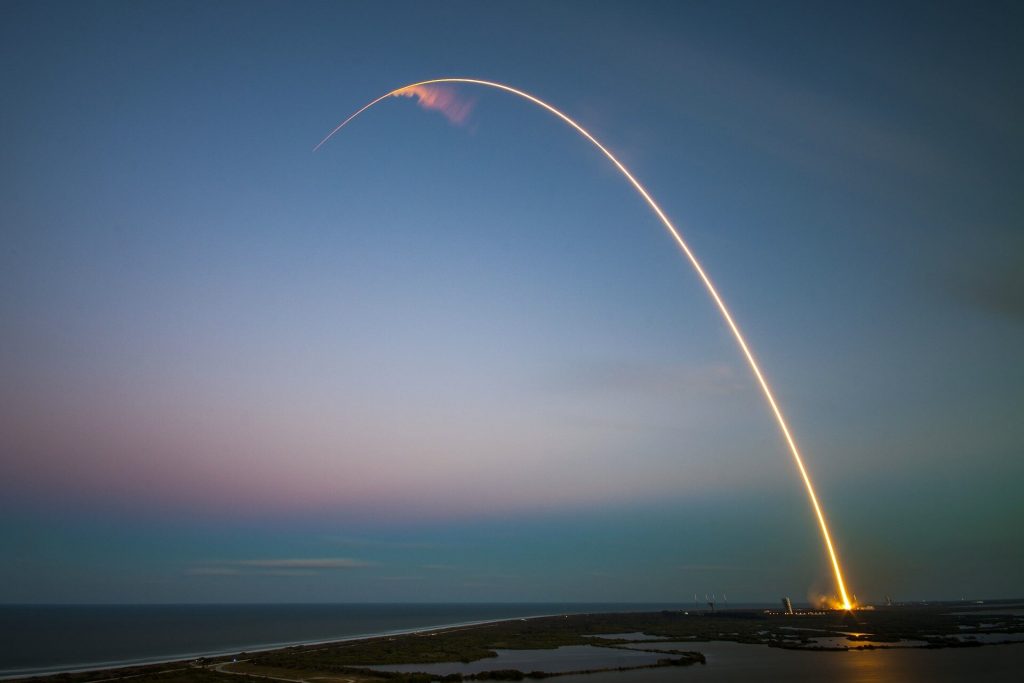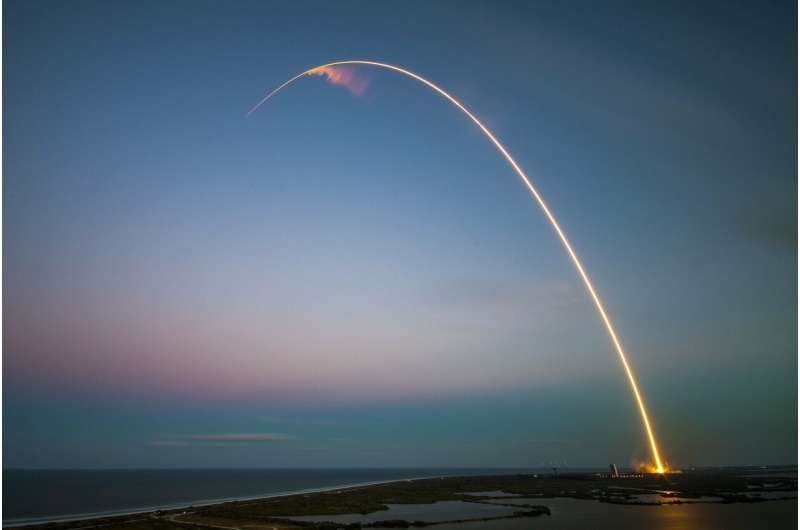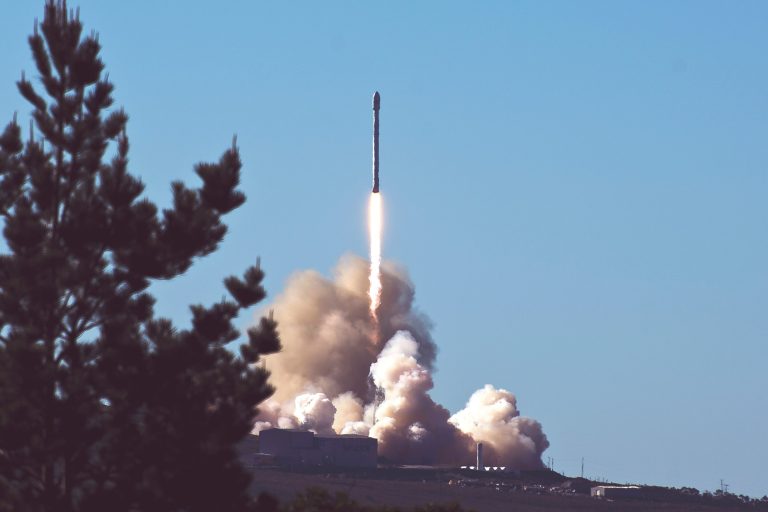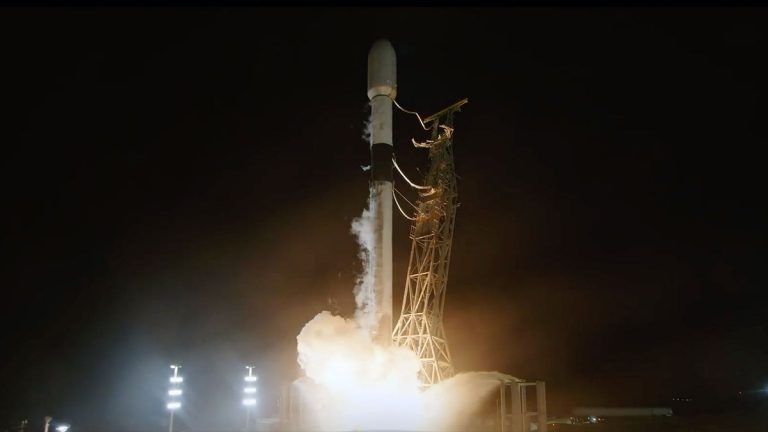
No damage to Relativity Space rocket at Cape Canaveral from fire at launch site, CEO says (Image Credit: Phys.org)

New rocket company Relativity Space is gearing up for its first ever launch testing its Terran 1 rocket at Cape Canaveral Space Force Station, and a fire spotted at the launch site prompted its CEO to reassure people the rocket was fine.
Images posted of flames and smoke rising from Launch Complex 16 by media outlet Talk of Titusville on Twitter had Relativity cofounder and CEO Tim Ellis commenting the rocket was well, and the launch pad damage was minimal.
“This grass fire was outside the rocket, from methane flare stack,” Ellis said. “The team and rocket are all safe, and minimal to no pad damage either. Mostly grass.”
Relativity’s 3D printed rocket arrived to from its factory in Long Beach, California, to the Space Coast last month prepping for a mission dubbed “GLHF,” as in “Good Luck, Have Fun,” which won’t be carrying any customer payloads, but will aim to prove it can perform for future missions when it attempts lift off later this year. A target launch date has not been determined, but earlier company statements said it was targeting before the end of summer.
Images posted to the company’s Twitter account earlier this week showed the rocket’s first stage on the launch pad prepping for testing.
Smaller than SpaceX Falcon 9 rockets, but at 110 feet tall with a 7.5-foot-wide fairing, they are capable of sending 2,756 pounds of payload to low-Earth orbit of about 310 miles. Terran 1 is expendable, but a much larger reusable 3D rocket is in the works called Terran R.
The company recently announced a deal to provide launch services with satellite company OneWeb, with its Terran R rocket beginning in 2025, to add to OneWeb’s existing constellation of 648 satellites. With the agreement Relativity stated is now has $1.2 billion in booked launches.
Other customers lined up include the U.S. Department of Defense and NASA, which awarded the company $3 million as part of its Venture Class Launch Services Demonstration 2 contract.
All of Relativity’s initial launches will be from LC-16, which has not had a launch since 1988 but was used for Titan and Pershing missiles as well as test for the Apollo and Gemini programs.
The company joins SpaceX, United Launch Alliance and Astra Space, all three of which are already active from their respective Cape Canaveral launch pads while Blue Origin is expected to attempt its first launch with the New Glenn rocket by 2023.
Explore further
©2022 Orlando Sentinel.
Distributed by Tribune Content Agency, LLC.
No damage to Relativity Space rocket at Cape Canaveral from fire at launch site, CEO says (2022, July 11)
retrieved 12 July 2022
from https://phys.org/news/2022-07-relativity-space-rocket-cape-canaveral.html
part may be reproduced without the written permission. The content is provided for information purposes only.








